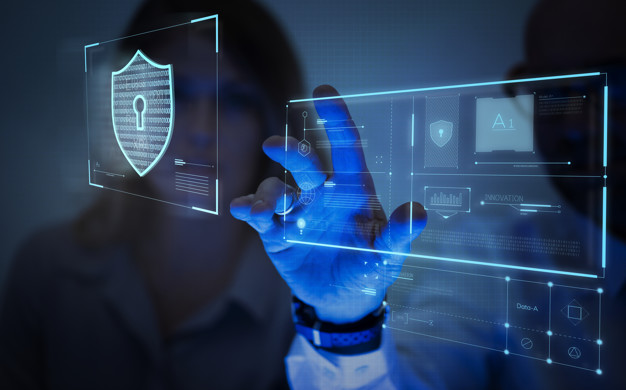Cybersecurity is one of the most sought-after academic disciplines in colleges and universities. In today’s world, since there are a lot of cyber-attacks, the importance of implementing proper cybersecurity measures has become mandatory.
In this tech-driven day and age, the trend of using Public Key Infrastructure, or PKI, is on the rise. A tech person would easily understand what PKI means, but an average Joe would not know a thing about it. In this article, we are going to delve deep into knowing the basics of Public Key Infrastructure.
There are many tools like Keyfactor that provide Cyber Security certifications. So, without wasting any further time, let us take a brief look at what PKI actually is.
What Does The Term PKI Mean?
In simple words, PKI is the term that focuses on everything that establishes and runs public key encryption. Public Key Infrastructure is one of the most common types of Internet encryption that deals with Cybersecurity.
It is actually installed on all web browsers to ensure that the traffic of the website is coming from a secure place. Organizations also use PKI to secure their internal communications.
The whole concept of PKI revolves around cryptography; it ensures that proper security is provided to websites. Keep in mind that these keys are not a part of the process of encryption; they just help to authenticate the true identity of the parties or devices. They are just certificate givers.
What Are PKI Certificates?
PKI certificates are nothing but online documents that work like digital passports. They are basically given to websites or entities that want to join the PKI-secured conversation. PKI certificates are not just random authentications, as they can contain a significant amount of data.
One of the top important pieces of information that a certificate includes is the website’s or entity’s public key; the certificate is only the medium through which the key is shared.
Then comes the part of authentication. Here, the certificate comes with an attestation from a reliable source that the entity or website is who they declare to be. Let us look at some of the key elements of PKI certificates to get a better understanding.
1. Registration Authority –
The registration authority is the single most important element in the Public Key Certificate. It confirms the identities of those asking for digital certificates.
2. Certificate Authority –
The certificate authority signs the entities with its public key and issues digital certificates.
3. Certificate Policy –
This certificate policy outlines all the PKI procedures; it helps outsiders judge the authenticity of the website.
4. Certificate Database –
The Database stores the metadata and certificates until the license expires.
Now that you know the basis of PKI and PKI certificates, let us take a look at the uses of PKI.
Different Types Of Public Key Infrastructure (PKI)?
Basically, PKI (public key infrastructure) includes a system consisting of technologies, policies, and procedures. With the help of PKI, you can create, manage, and use public keys and digital certificates.
Generally, PKI falls under the basics of cybersecurity. Actually, it helps systems to secure communication and data transfer. Additionally, it also helps the system to establish user identity, services, and devices.
The following are the ways through which PKIs help you ensure cybersecurity in your organization:
1. Digital Certificates
Basically, these are electronic data structures that bind a user or any entity to their public keys. In fact, you can use digital certificates if you want to establish a secure connection between private systems and public web pages. Some examples of such systems are internal Wi-Fis, VPNs, wiki pages, etc.
2. Encryption
You need a cryptographic key if you want to authenticate devices or people. This helps in securing the network system when someone is trying to communicate with the network.
3. Digital Signatures
It will be easier to verify whether certain electronic documents are authentic or not with the help of digital signatures. Hence, when you are dealing with contracts, legal paperwork, and other records, digital signatures can help you a lot.
4. Data Protection
With a variety of features for protection, PKI helps to protect data and ensure accountability. This will help in verifying transactions.
5. Controlled Access
You can verify and establish the identity of various entities in the network. Hence, this ensures limited access to resources and network systems.
What Are The Uses Of Public Key Infrastructure?
I am sure you have heard the term SSL before; it is the most common PKI implementation. But PKI is not just limited to SSL. There are a ton of other uses of PKI as well.
- Securing Local Networks.
- Email Encryption.
- Securing IOT Devices.
- Securing Internal Communications.
- Signing Documents.
- Giving Recovery Key for Encrypted Hard Drives.
I hope by now you have understood the uses of PKI, so let us take a look at some of the risks that you may face if you do not execute PKI properly.
What Are The Dangers Of Poor PKI Implementation?
The thing is, having PKI does not ensure total security, but IT and Security Professionals take PKI very seriously because they are well aware of the risks. Some of the common risks that you may face due to poor PKI implementation are:
- More encryption increases operational costs
- Most business organizationslack the proper infrastructure to Implement PKI
- Unsecured websites undermine trust.
Final Thoughts:
There you have it. Above was pretty much everything that you needed to know about PKI, aka Public Key Infrastructure. Basically, you can use PKIs to manage and control public keys. Here, your goal is to encrypt these public keys to protect the network. This ensures secure data transfer and communication on the Internet.
I hope you have found this article informative and educational. If you have some further queries in regard to PKI, kindly comment them down below.
Read Also:
- Would Your Ecommerce Website Pass the Cybersecurity Test? Here are 3 Things You Could Be Doing Wrong
- 6 Benefits of Microsoft 365 Security
- Five Tips to Make Sure Your Security Software Is Actually Secure
- Why You Need A Secure Wifi Connection In Shared Space























